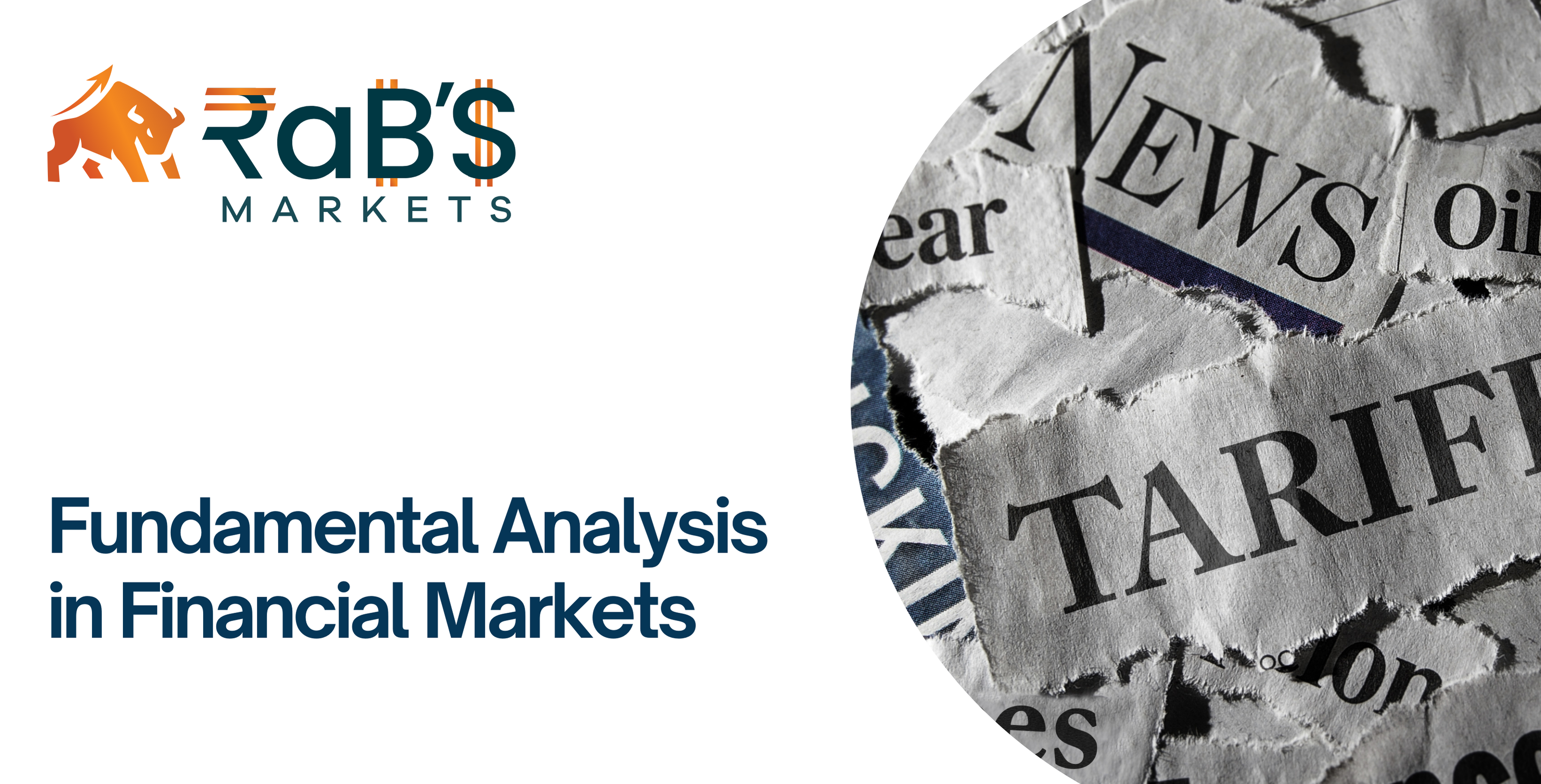A Complete Guide
In the world of financial markets, traders and investors use two main approaches to make decisions: Technical Analysis and Fundamental Analysis.
While technical analysis focuses on price charts and market patterns, fundamental analysis looks deeper into the real economic value of an asset.
In this article, we’ll explore what fundamental analysis is, how it works across different markets (forex, stocks, commodities, and crypto), and why it’s essential for smart trading and investing.
🔎 What is Fundamental Analysis?
Fundamental analysis is the study of economic, financial, and qualitative factors to determine the intrinsic value of an asset.
Instead of asking “What is the market price today?”, fundamental analysis asks:
👉 “What should the asset be worth based on real-world data?”
This method helps traders and investors identify whether an asset is:
- Undervalued → Possible buy opportunity
- Overvalued → Possible sell opportunity
- Fairly valued → Best to hold or wait
🏦 Key Elements of Fundamental Analysis
1. Macroeconomic Factors (Big Picture)
These factors affect entire economies and markets:
- Interest Rates – Central bank rate hikes strengthen currencies but may pressure stock prices.
- Inflation – High inflation reduces purchasing power and influences monetary policy.
- GDP Growth – Strong GDP signals economic health and attracts foreign investment.
- Employment Data – Non-Farm Payrolls (NFP), unemployment rates, and wage growth impact market sentiment.
- Geopolitical Events – Elections, wars, or trade disputes often cause volatility.
2. Microeconomic & Company-Specific Factors
For stocks or corporate assets, analysts study:
- Earnings Reports – Profits, revenues, and margins.
- Balance Sheet Health – Debt vs. equity, liquidity, and solvency.
- Management Quality – Leadership decisions and business strategies.
- Industry Trends – Growth potential, competition, and regulation.
3. Global & Market-Specific Drivers
Each market reacts to unique factors:
- Forex (Currencies): Central bank policy, trade balances, and interest rate differentials.
- Commodities (Gold, Oil, etc.): Supply-demand dynamics, production costs, OPEC decisions, and safe-haven demand.
- Cryptocurrencies: Blockchain adoption, regulatory environment, token supply, and utility.
📊 Fundamental Analysis in Different Markets
🔹 Stocks/Equities
Investors compare a company’s market price with its earnings, assets, and growth potential. Ratios like P/E (Price-to-Earnings) and P/B (Price-to-Book) are commonly used.
🔹 Forex (Currencies)
Currency values are driven by economic performance and interest rate policies. For example, a strong U.S. jobs report often boosts the U.S. Dollar.
🔹 Commodities (Gold, Oil, Silver, etc.)
Gold tends to rise in times of inflation or geopolitical uncertainty, while oil is influenced by OPEC decisions and global demand.
🔹 Cryptocurrencies
Unlike traditional assets, crypto is evaluated by adoption rates, blockchain activity, tokenomics, and investor sentiment.
✅ Benefits of Fundamental Analysis
- Provides a long-term perspective for investments
- Helps in identifying undervalued or overvalued assets
- Builds confidence in trading decisions
- Complements technical analysis for a balanced strategy
⚖️ Fundamental Analysis vs. Technical Analysis
| Aspect | Fundamental Analysis | Technical Analysis |
|---|---|---|
| Focus | Economic/financial data | Price charts & patterns |
| Timeframe | Medium to long-term | Short to medium-term |
| Goal | Find intrinsic value | Predict price movement |
| Useful For | Investors, swing traders | Day traders, scalpers |
🎯 Conclusion
Fundamental analysis is the backbone of smart trading and investing. By studying economic data, company performance, and global trends, traders can make informed decisions and reduce risks.
At Rabs Markets, we encourage traders to use both fundamental and technical analysis for a well-rounded strategy. This combination helps you not only follow the market trends but also understand the why behind price movements.



